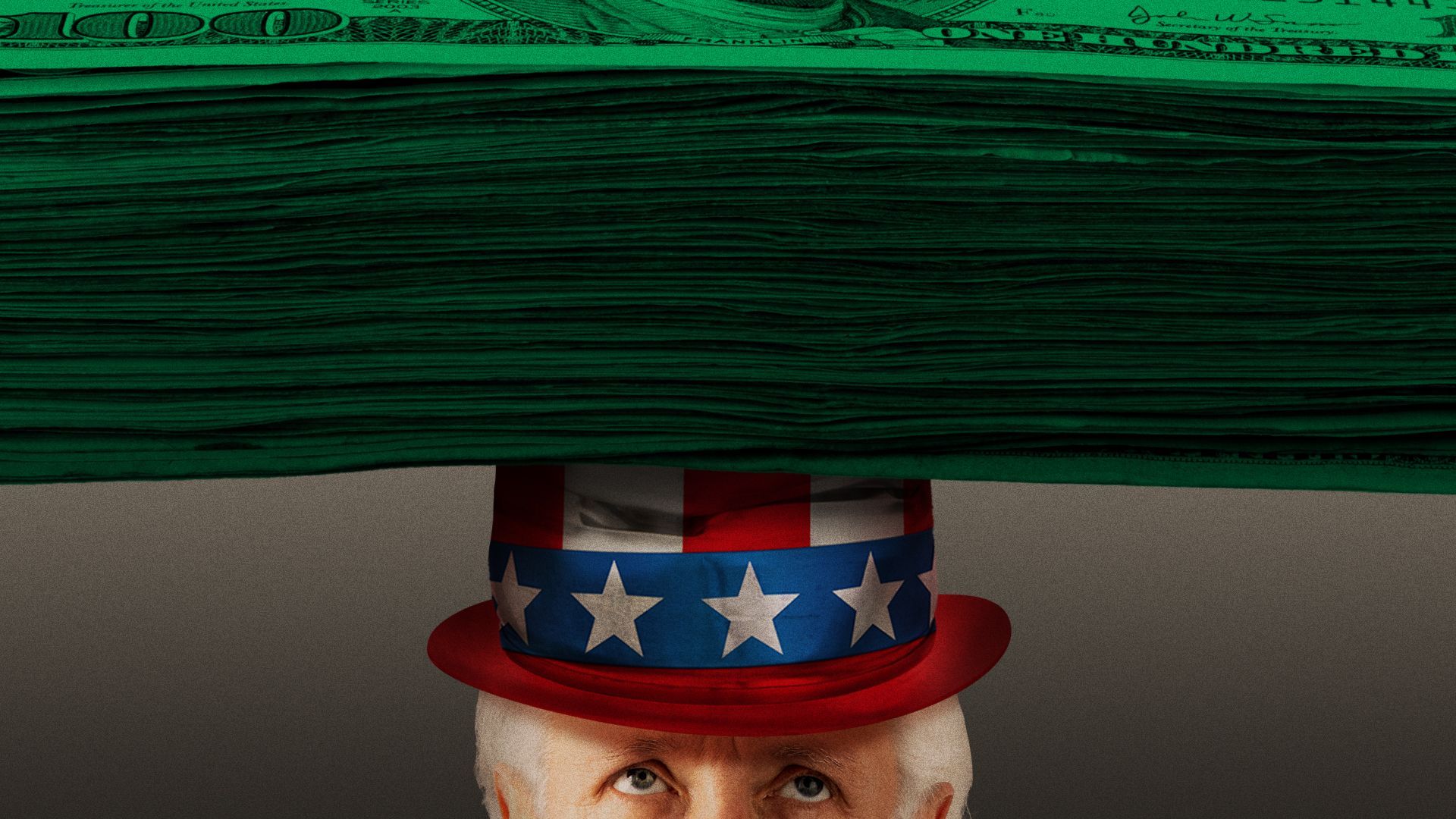McCarthy hints at coming debt ceiling nightmare scenario

Illustration: Shoshana Gordon/Axios
America is inching toward its next debt ceiling fight, with House Speaker Kevin McCarthy (R-Calif.) yesterday laying out part of his strategy in a speech at the New York Stock Exchange.
The big picture: On the surface, this is nothing new. Republicans for over a decade have used the debt ceiling as leverage to cut future spending.
Why it matters: But monetary and political conditions in 2023 are much different than they have been during past debt ceiling battles, as could be the consequences of a 2011-style downgrade.
- In 2011 the Federal Reserve was in an era of quantitative easing, giving confidence to sovereign noteholders that there would be a buyer for their Treasuries, even if downgraded.
- In 2023 the Fed is in the midst of quantitative tightening. That means a downgrade could cause much more severe ripples through the capital markets and economy. One private equity executive recently told me it's the thing that scares him much more than a second-half recession.
- Politically, McCarthy has a much narrower majority than did John Boehner in 2011. That is likely to limit his ability to negotiate with the White House (assuming, of course, that the WH moves off its current stance of "clean" debt ceiling increase or nothing).
- McCarthy is pledging a debt ceiling vote in the House within weeks, although we're still waiting on specifics. His conference is meeting to hammer that out as I type.
Reminder: Raising the debt ceiling, or not, is about servicing debts already incurred by past spending. In other words, America paying its bills.
- We also don't yet know exactly when the Treasury Department's "extraordinary measures" run their course.
Behind the scenes: Wall Street obviously wants a deal that avoids downgrades or default, but so far is sitting on the sidelines.
- McCarthy's appearance at the NYSE was part of a GOP effort to get financiers to put pressure on the White House. Likewise, there's been Democratic pressure in the other direction.
- "This is the stupidest debate in the world because obviously we need to raise the debt ceiling," says a private equity executive who mostly donates to Republicans. "But I don't think it's helpful yet for people like me to get involved."
The bottom line: Most economic calamities are unavoidable, or at least take us by surprise. The debt ceiling is an exception to that rule.
Source: Read Full Article

